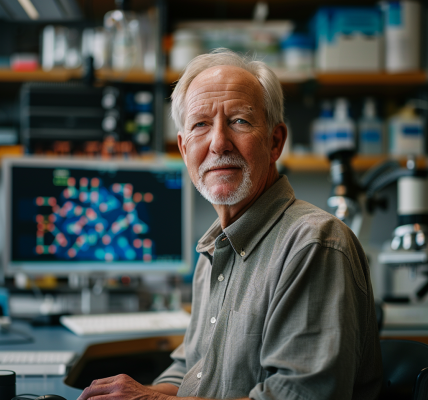Scientists at the University of Dundee have made a significant breakthrough in understanding Parkinson’s disease by uncovering the inner workings of a vital molecular switch that protects the brain against this debilitating condition.
Parkinson’s disease is the fastest-growing brain disorder globally, yet there are currently no treatments available to slow down or stop its progression. However, the latest research from the University of Dundee offers new hope for developing drugs that could benefit Parkinson’s patients.
Previous studies at the University identified a gene called PINK1 that plays a crucial role in safeguarding brain cells from stress. In individuals with PINK1 mutations, this protective mechanism is compromised, leading to the degeneration of cells responsible for movement control, resulting in Parkinson’s symptoms.
PINK1, which encodes a type of enzyme called a kinase, acts as a sensor for damage in cell mitochondria, the energy producers of cells. Upon detecting damage, PINK1 triggers a protective pathway by interacting with two essential proteins, ubiquitin and Parkin, to eliminate the damage. However, the activation mechanism of PINK1 was previously unknown.
Recently published in the journal Science Advances, a team of scientists from the University of Dundee, in collaboration with researchers from the UK, Netherlands, and Germany, utilized biological and artificial intelligence methods to unveil a model of how the PINK1 enzyme is activated.
The research findings demonstrate that the activation of the PINK1 switch occurs through binding to specific components of a complex structure on the mitochondria’s surface known as the Translocase of the outer membrane (TOM) complex.
Unique elements within PINK1, not found in other enzymes, form a relay switch that enables the activation of PINK1, allowing it to target ubiquitin and Parkin to exert its protective effects against Parkinson’s disease.
Professor Miratul Muqit, a Consultant Neurologist at the Medical Research Council Protein Phosphorylation and Ubiquitylation Unit (MRC-PPU) at the University of Dundee, expressed the significance of the research in advancing potential treatments for Parkinson’s patients. He highlighted the importance of understanding fundamental mechanisms to pave the way for improved disease management in the future.
Professor Dario Alessi, Director of the MRC-PPU, emphasized the implications of the study in the development of new treatment strategies targeting the PINK1 pathway. He noted that some of these strategies are progressing to clinical trials for Parkinson’s patients this year, indicating a promising outlook for the field.





